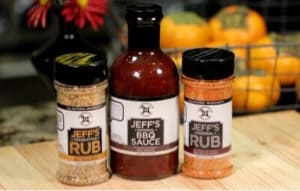Wasn't sure how to word it or where to post lol....
What I'm wondering is what people use to weigh their meat down when they have it soaking in a brine??
I'm currently soaking a brisket to make pastrami and came at an impasse when I needed to find something to keep it submerged. I decided on using a plastic gallon ziploc bag, but it seems like it will hinder the process where the bag makes contact with the meat. I'm using a big water bath canner to hold everything and my first instinct was to use the rack that holds all the jars.....but then I was worried about what the rack was made out of and if it would react with the brine solution and taint the meat.
What does everyone else use?
What I'm wondering is what people use to weigh their meat down when they have it soaking in a brine??
I'm currently soaking a brisket to make pastrami and came at an impasse when I needed to find something to keep it submerged. I decided on using a plastic gallon ziploc bag, but it seems like it will hinder the process where the bag makes contact with the meat. I'm using a big water bath canner to hold everything and my first instinct was to use the rack that holds all the jars.....but then I was worried about what the rack was made out of and if it would react with the brine solution and taint the meat.
What does everyone else use?
Last edited:




